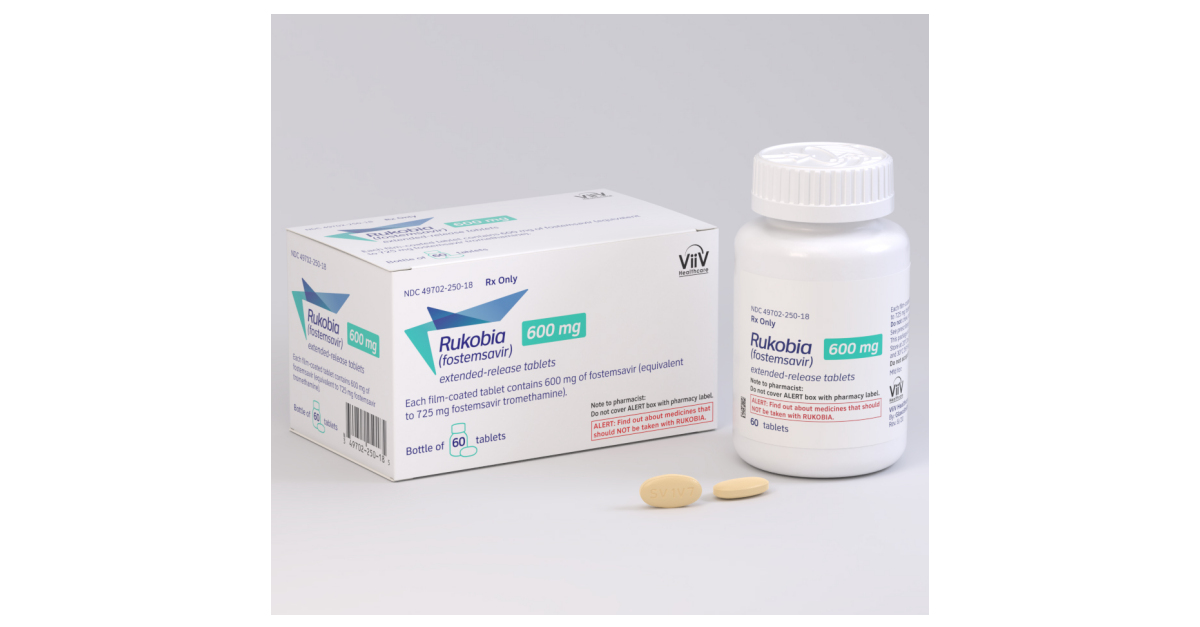HIV Drugs: US FDA Approves Rukobia (Fostemsavir) To Treat Patients With Multidrug Resistant HIV Infection
Source: HIV Drugs Jul 04, 2020 5 years, 7 months, 2 weeks, 16 hours, 4 minutes ago
HIV Drugs: The drug Rukobia (fostemsavir) has been approved by The U.S. FDA for adults living with HIV who have tried multiple HIV medications and whose HIV infection cannot be successfully treated with other therapies because of resistance, intolerance or safety considerations.

Rukobia (Fostemsavir) is a new type of antiretroviral medication to be taken twice daily by mouth. It is a prodrug, which means that it is an inactive drug. Once taken, a prodrug does not work until the body converts it into an active form.
https://aidsinfo.nih.gov/drugs/508/fostemsavir/0/patient
The U.S. Food and Drug Administration has granted approval of Rukobia to pharmaceutical company ViiV Healthcare.
Dr Jeff Murray, M.D., deputy director of the Division of Antivirals in the FDA's Center for Drug Evaluation and Research told Thailand Medical News, "This approval marks a new class of antiretroviral medications that may benefit patients who have run out of HIV treatment options. The availability of new classes of antiretroviral drugs is critical for heavily treatment-experienced patients living with multidrug resistant HIV infection, helping people living with hard-to-treat HIV who are at greater risk for HIV-related complications, to potentially live longer, healthier lives."
The U.S.FDA evaluated the safety and efficacy of Rukobia in a clinical trial of 371 heavily treatment-experienced adult participants who continued to have high levels of virus (HIV-RNA) in their blood despite being on antiretroviral drugs. Two hundred seventy-two participants were treated in the main trial arm, and an additional 99 participants received Rukobia in a different arm of the trial.
Most patients participating in the trial had been treated for HIV for more than 15 years (71 percent), had been exposed to five or more different HIV treatment regimens before entering the trial (85 percent) and/or had a history of AIDS (86 percent).
Patients in the main cohort of the trial received either Rukobia or a placebo twice daily for eight days, in addition to their failing antiretroviral regimen. On the eighth day, participants treated with Rukobia had a significantly greater decrease in levels of HIV-RNA in their blood compared to those taking the placebo. After the eighth day, all participants received Rukobia with other antiretroviral drugs. After 24 weeks of Rukobia plus other antiretroviral drugs, 53 percent of participants achieved HIV RNA suppression, where levels of HIV were low enough to be considered undetectable. After 96 weeks, 60 percent of participants continued to have HIV RNA suppression.
The only common adverse reaction to Rukobia was nausea. Severe adverse reactions included elevations in liver enzymes among participants also infected with hepatitis B or C virus, and changes in the immune system (immune reconstitution syndrome).
The U.S. Food and Drug Administration granted this application Fast Track, Priority Review and Breakthrough Therapy designations.
For more on
HIV Drugs, keep on logging to Thailand Medical News
